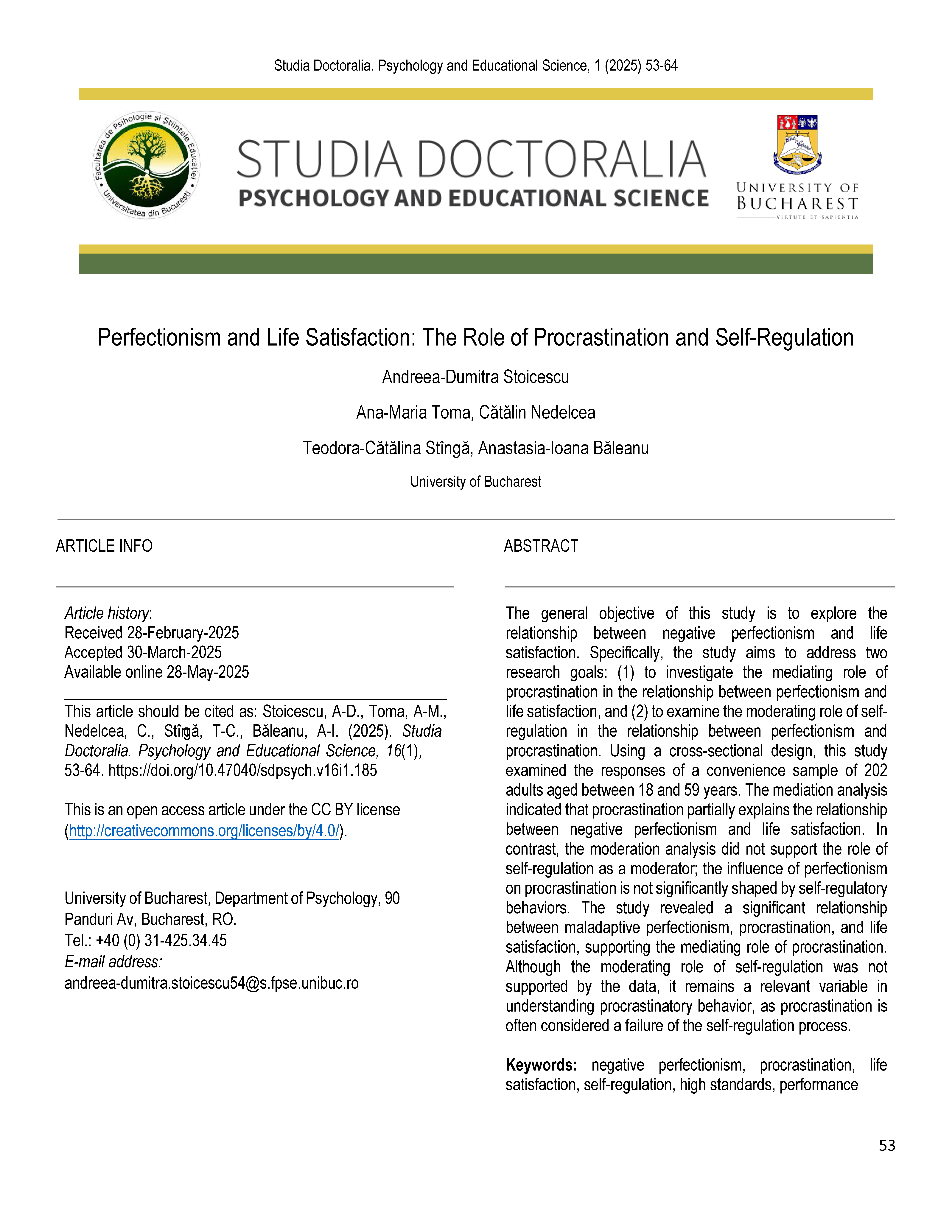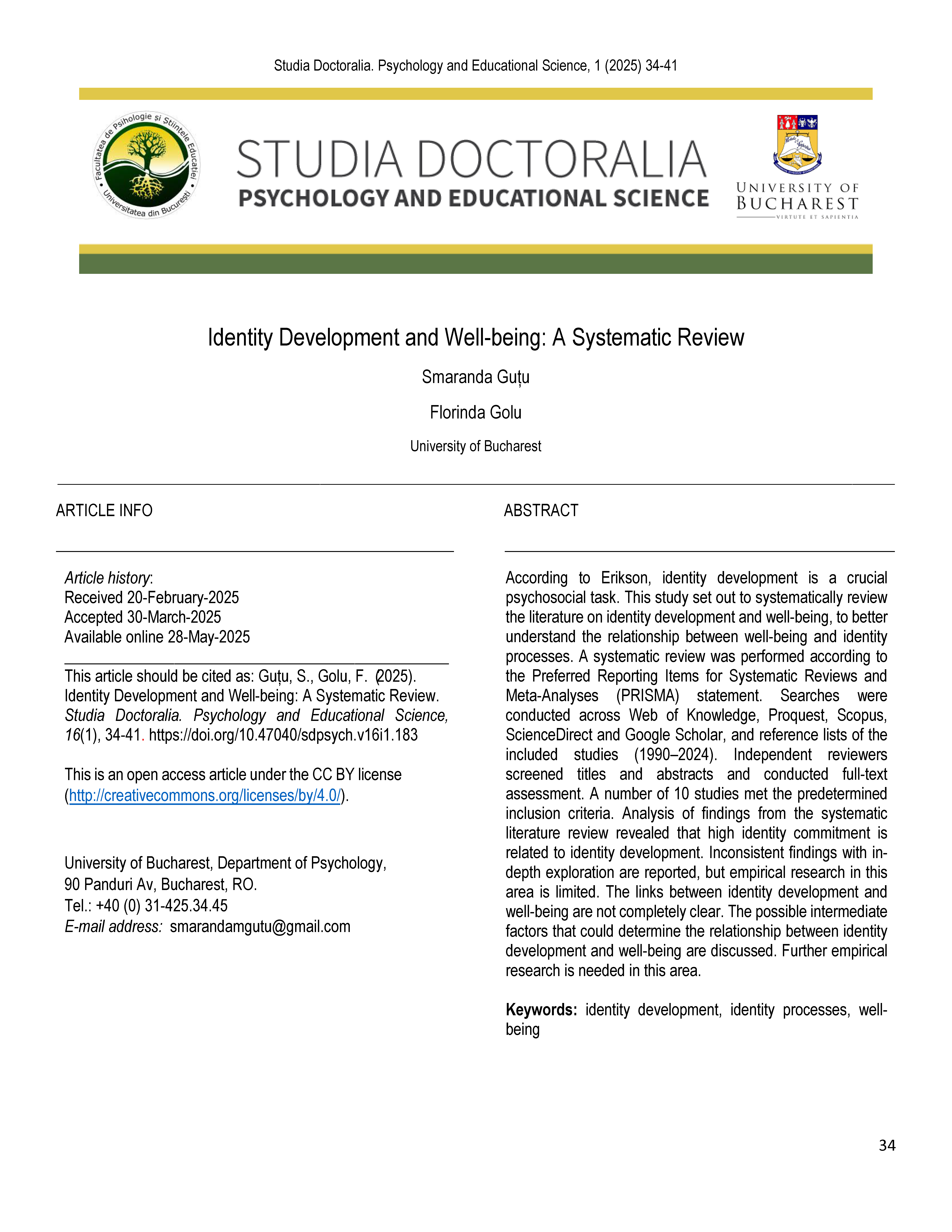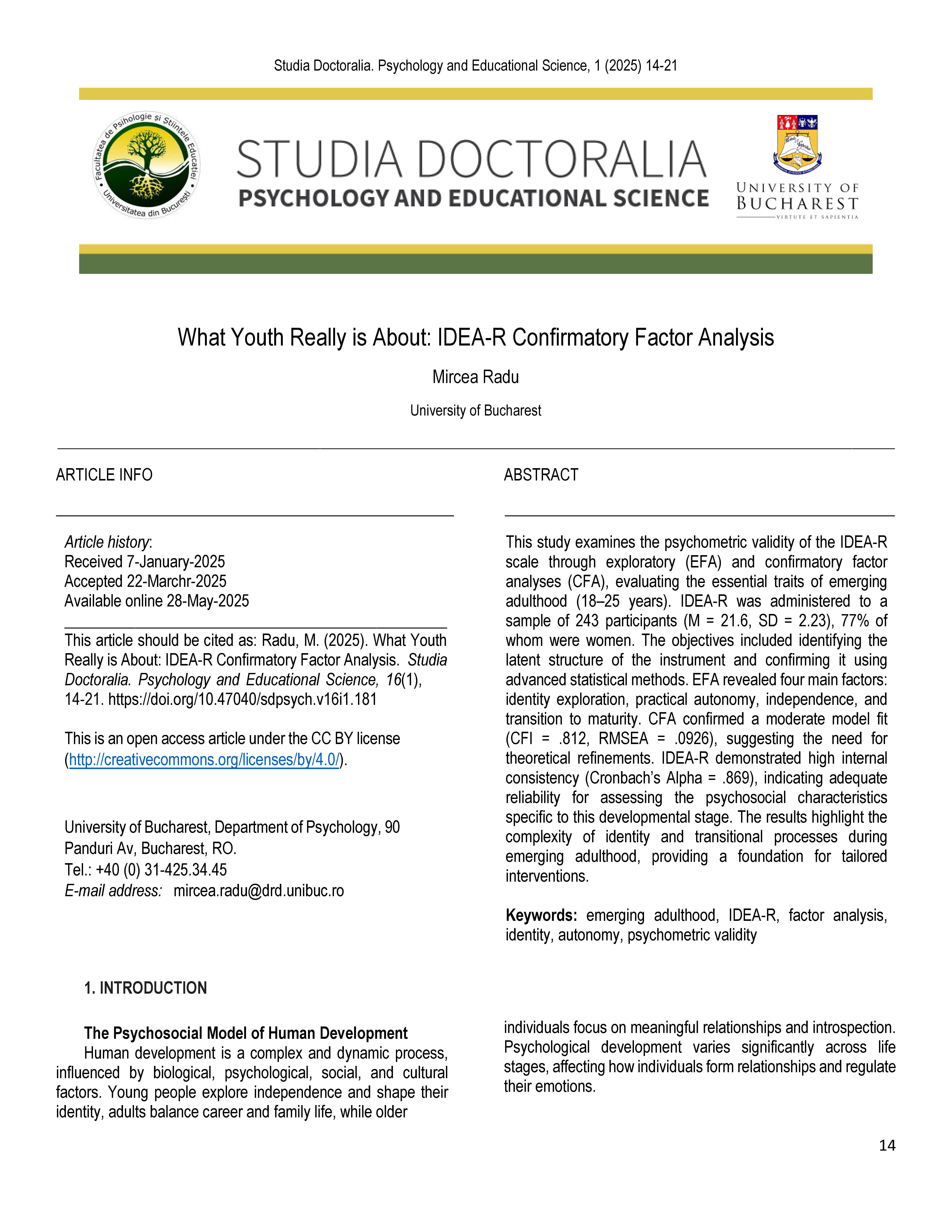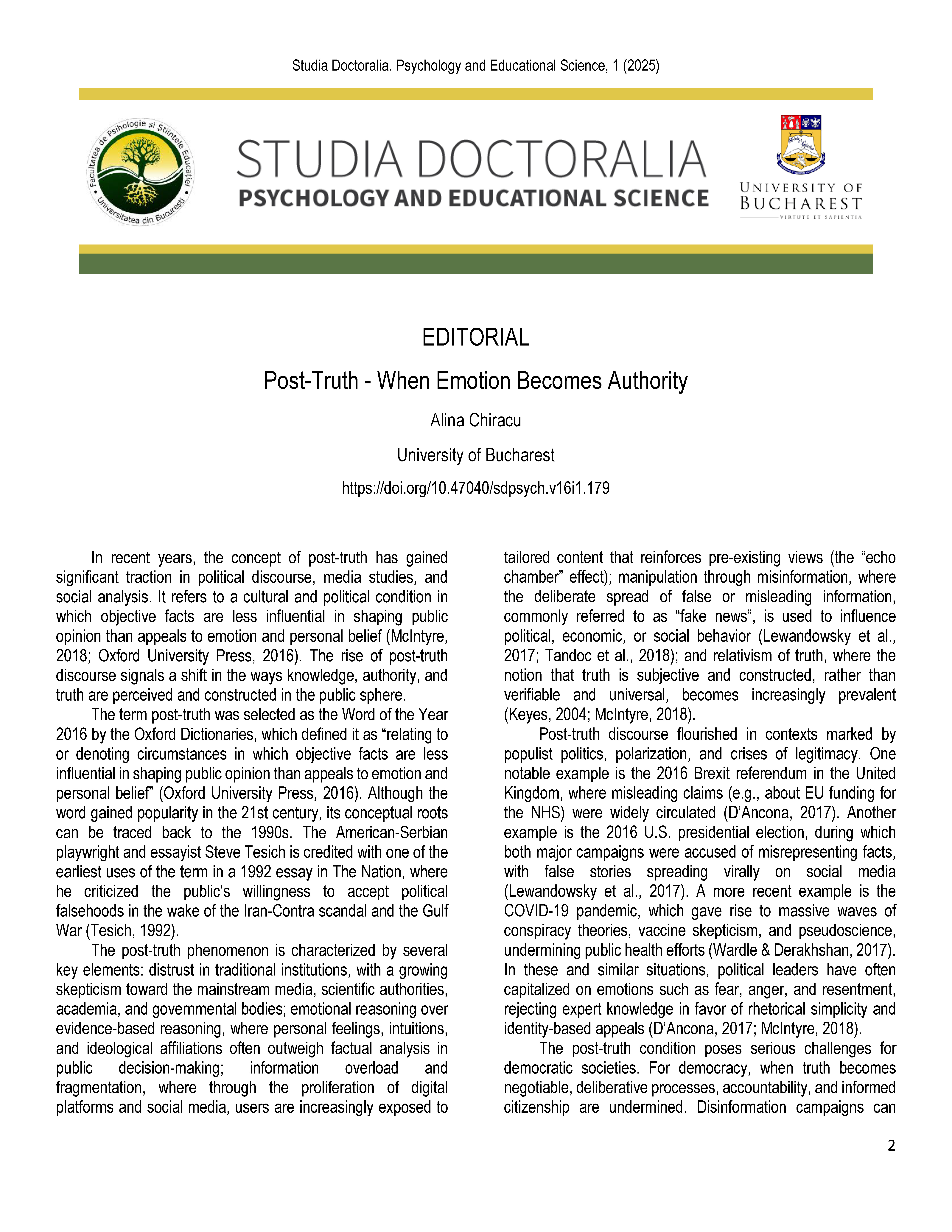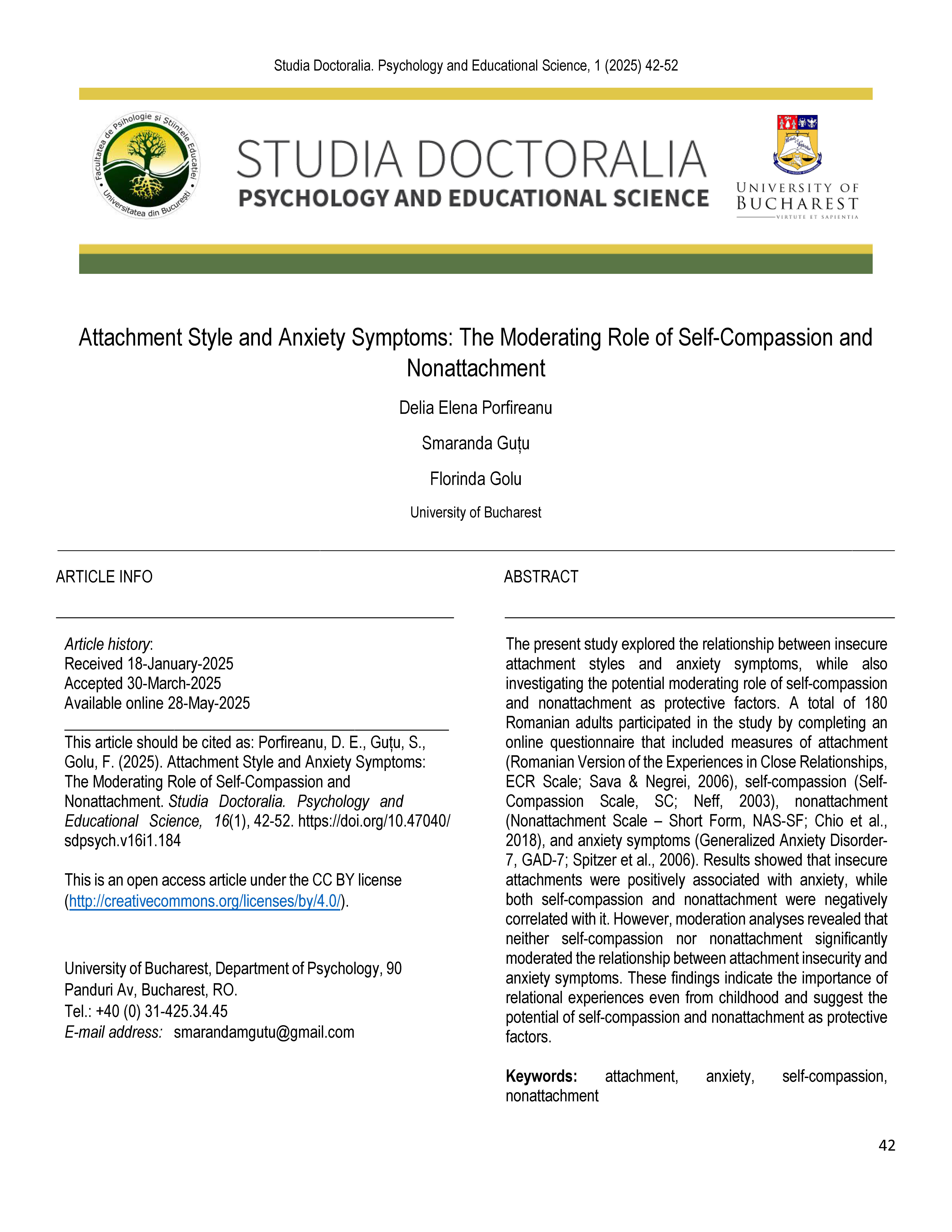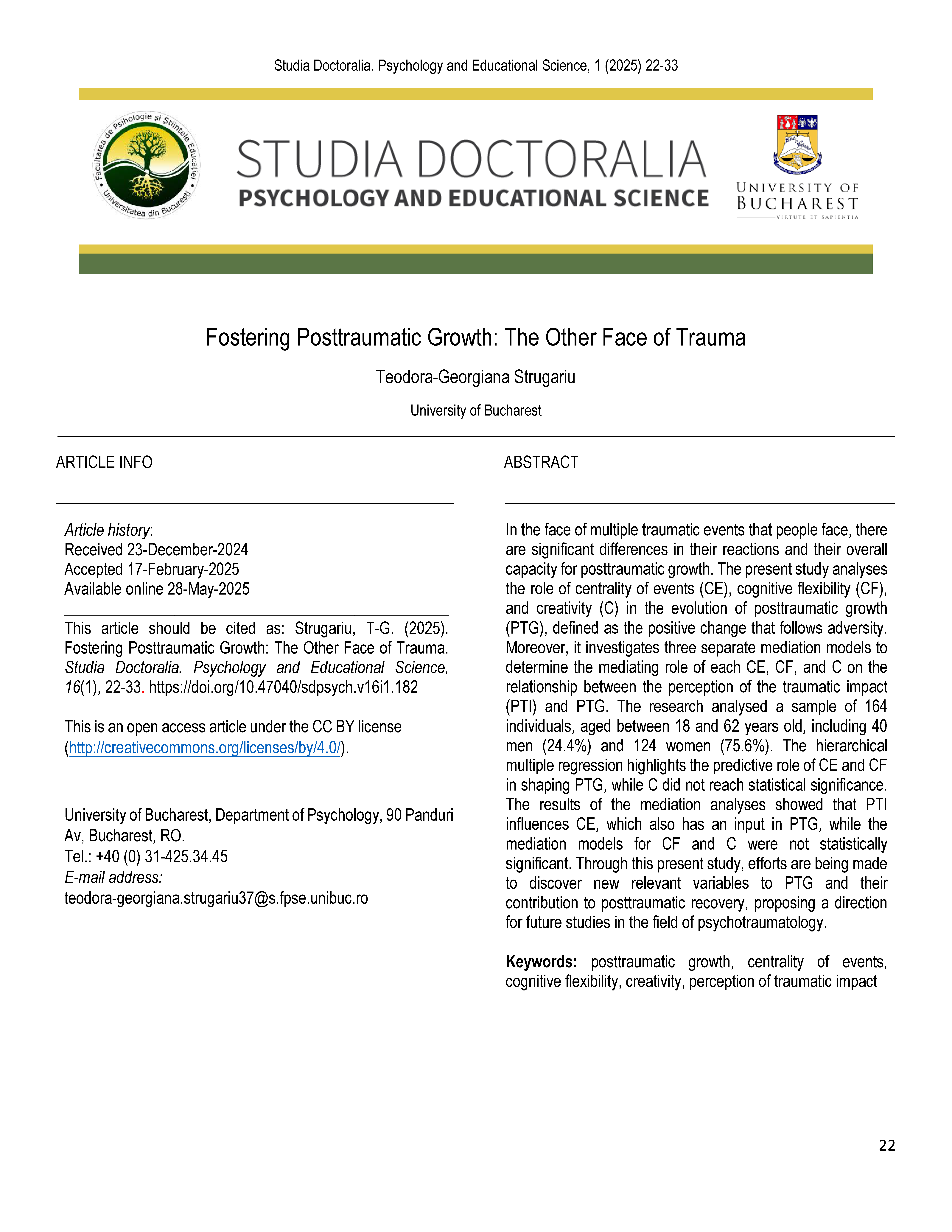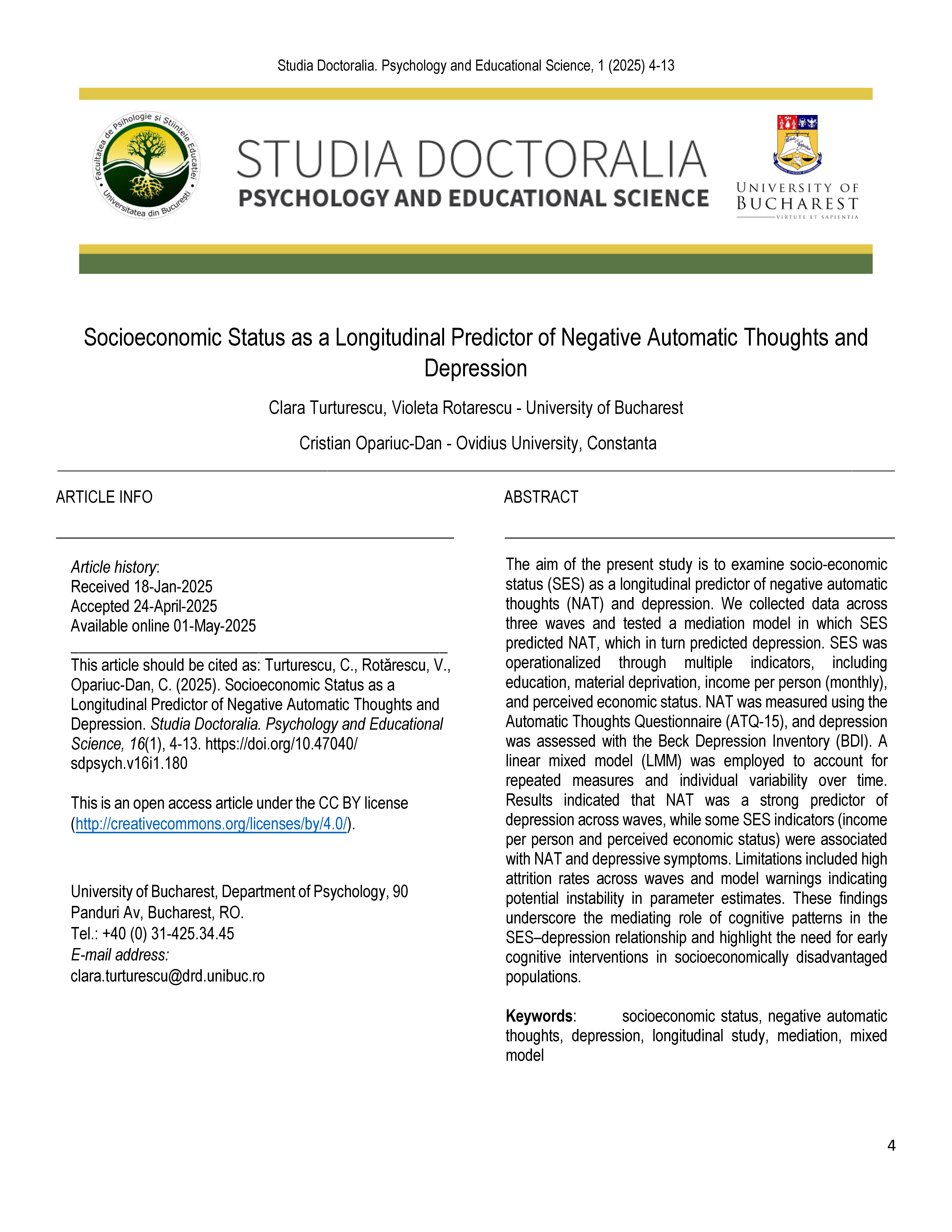Vol. 16 No. 1 (2025): STUDIA DOCTORALIA. PSYCHOLOGY AND EDUCATIONAL SCIENCE

Studia Doctoralia Psychology and Education is the official journal of The Doctoral School of Psychology and Education Sciences, University of Bucharest, Romania, published by the Doctoral Centre for Interdisciplinary Research, Innovation and Sustainable Development (CCIIDD). Audience and potential contributors include scholars, educators, consultants, practitioners, doctoral students, teachers and other professionals from all over the world and in all the applied fields of psychology and education science

